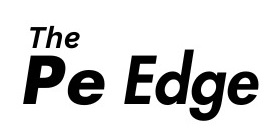
Automated Scenario Planning: The Secret Weapon for Portfolio Resilience –
Sept 3, 2025
In private equity, resilience isn’t just about reacting to shocks—it’s about anticipating them. Automated scenario planning, powered by AI, is becoming a critical tool for firms navigating today’s volatile markets.
Instead of relying on static models or quarterly updates, AI-driven platforms continuously simulate multiple “what-if” scenarios. From sudden interest rate shifts to supply chain disruptions or unexpected demand surges, these tools help GPs stress-test portfolios in real time. The result? Faster, data-backed decisions that protect downside while highlighting untapped upside.
Key benefits include:
- Dynamic modeling: Unlike static spreadsheets, automated scenario planning platforms refresh forecasts the moment new data comes in. Whether it’s quarterly earnings, inflation updates, or FX fluctuations, models adjust instantly to reflect reality helping firms stay ahead of sudden market shifts.
- Risk detection: AI continuously scans financial and operational signals across portfolio companies to spot early signs of stress. From margin compression to liquidity pressures, it flags vulnerabilities before they escalate into costly problems, giving managers time to act proactively.
- Opportunity spotting: Beyond protecting against downside, these systems highlight growth levers. By analyzing trends across industries and regions, they surface opportunities such as entering new geographies, optimizing pricing, or identifying strategic M&A targets that align with the fund’s thesis.
- LP-ready insights: Investors increasingly expect transparency and forward-looking reporting. Automated scenario planning tools generate scenario-based dashboards and reports that show not just performance today, but resilience under different futures—strengthening LP trust and confidence.
For PE firms, automated scenario planning is no longer optional—it’s the secret weapon to build resilience, safeguard returns, and stay ahead in a world where uncertainty is the only constant.
In today’s volatile markets, the firms that master scenario planning won’t just survive uncertainty—they’ll turn it into their competitive edge.

